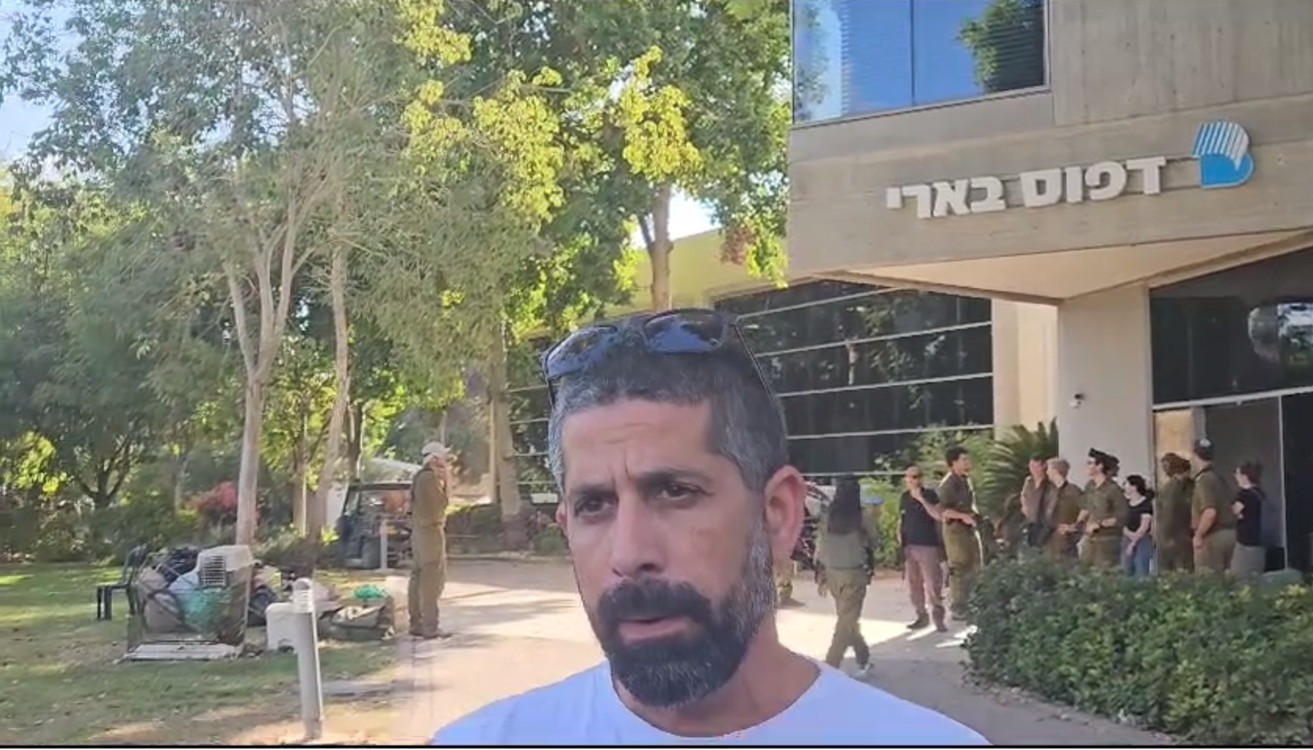A week after the massacre carried out by Hamas in Kibbutz Be’eri on October 7, the Be’eri Printing Press has reopened its doors.
"We stand here today, mere hours after managing to partially restart the factory. Be'eri is an integral part of the Kibbutz Be'eri community, and at this moment, the entire community is deeply pained and in mourning," Ben Suchman, the director of the facility said. "Through the connection between the community and the factory, we aim to promote change and optimism to pursue a brighter future."

Noor Pakhtsiarez, a worker at the printing press, shared his experience of the tragic events of October 7 and how it feels to be back at work.
"Starting at 7 in the morning, we found ourselves trapped," he said. "The situation kept on deteriorating. Around 4 or 5 PM our military began responding to the relentless gunfire and explosives."
Pakhtsiarez explained that during the day, many remained in contact with people from the neighboring communities of Kisufim and Kfar Azza.
"There was no other option but to stay inside and hope that the terrorists wouldn't reach us, that the army would intervene," he said. "It took many hours."
Later in the day, some of the residents were evacuated to hotels near the Dead Sea.
"It was a mental ordeal," Pakhtsiarez shared. "You walked into a hotel room, uncertain whether the child in front of you was orphaned or not."
"Kibbutz Be'eri is a tight-knit community," he added. "My older son has five classmates who are still missing. There are 15 children in that class, five of them are unaccounted for. These are children who have grown up in my home since birth, and their parents were killed."
A resilient community
Pakhtsiarez also shared how the Printing Press decided to resume activities.
"On Monday evening, the CEO's son began assessing which members of the management could return to work," he said. "We understood that the kibbutz's recovery would be a lengthy process. We quickly realized that the factory was going to be the key to relaunching the kibbutz. Fortunately, the factory was not damaged. A week after the tragic events, we were back."
Pakhtsiarez went back to work despite dealing with a personal tragedy.
"We still don't know where my wife's father is," he said. "Since last Saturday, we've had no contact."
